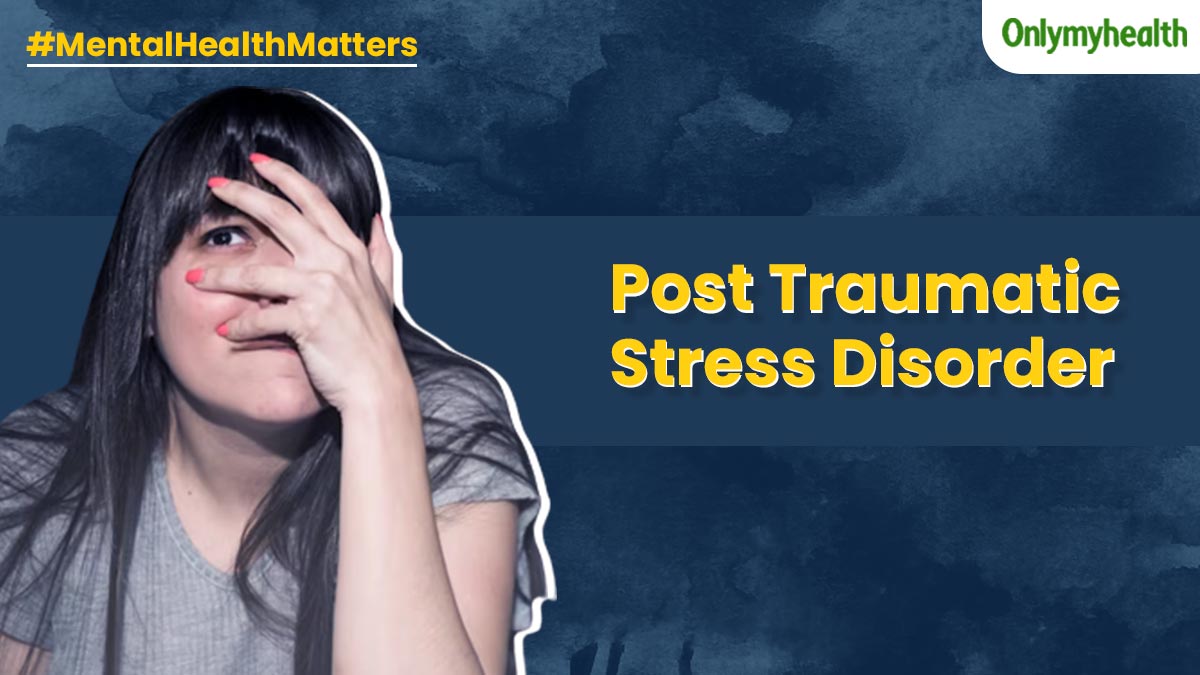
From vibrant and cheerful, you morph into a wary soul, apprehensive of even those deemed trustworthy. It is a perplexing period, brimming with anxiety. The agony is profound, for cherished relationships break, leaving an ache in your heart. Even those who claim to understand you well fail to grasp your essence, leaving you stranded in deep isolation. This is what a person dealing with post-traumatic stress experiences.
Table of Content:-
In our exclusive campaign, 'Mental Health Matters', we took a deep dive into the issue. We talked to Damini Grover, Counselling Psychologist, Heal Your Life Coach, Founder - I'M Powered Center for Counseling and Well-being, Delhi.
What Is A Post-Traumatic Stress Disorder?
According to Grover, Post-Traumatic Stress Disorder (PTSD), is a trauma-related disorder that occurs after exposure to a severe traumatic event. These events can be either directly or indirectly linked to you."

"PTSD can be caused by any traumatic experience and can be short-term or long-term, depending on the intensity and coping mechanisms. It has a significant impact on mental, emotional, and physical health, as well as relationships and daily functioning," added Grover.
Also Read: #MentalHealthMatters: What Is Talk Therapy And How Does It Benefit You?
How Does It Start?
She said that it can be caused by various traumatic events, such as assault, abuse, accidents, natural disasters, or life-threatening illnesses. "People with preexisting disorders are more susceptible to developing PTSD," she added.
When Does It Start?
According to our expert, "PTSD can occur at any point." Citing an example, she added that people may even experience it within a month of encountering a traumatic event. But, there are chances that a person may not exhibit any symptoms, even after a few years have gone by.
Signs of Post-Traumatic Stress Disorder
Grover said, "The common symptoms of PTSD include flashbacks, nightmares, anxiety, and intense reactions to triggers or the event. A person keeps reliving the traumatic event, even in the present."
To this, she added, "A person may also have mood changes like feeling numb, hopeless or anxious. Guilt, shame, loss of interest, hyperarousal, difficulty concentrating, sleep disturbances, appetite changes, self-destructive behaviours, and negative outlook are some of the other symptoms often seen in people suffering from PTSD."
Also Read: #MentalHealthMatters: Why Do I Have Negative Thoughts In My Mind?
Can Children Develop PTSD?

Grover said, "Children can also develop PTSD, experiencing similar symptoms and behavioural issues as mentioned." To this, she added that children may become aggressive, face difficulty in school, and may develop physical symptoms like headaches and stomach aches.
Grover said, "PTSD in kids can be triggered by something horrible and terrifying that happened to them. The trigger may come from maybe a friend, family member, or even something that the child saw on television or even on social media."
How To Provide Support?
Grover said, "Supporting someone with PTSD requires understanding the condition and providing therapeutic and social support. Patience and comfort are essential as individuals with PTSD may isolate themselves or be hesitant to discuss their experiences."

She said, "Pressuring them to seek help or improve can be counterproductive. Being a good listener, offering a safe environment, and helping them manage anger and volatility is crucial." Moreover, caregivers should also manage their stress and prioritise self-care, she added.
Importantly, stay by their side, listen, give them comfort, and allow them to open up at their own pace, she concluded.
Also watch this video
How we keep this article up to date:
We work with experts and keep a close eye on the latest in health and wellness. Whenever there is a new research or helpful information, we update our articles with accurate and useful advice.
Current Version
